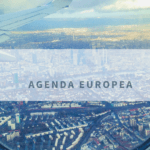- Union for Mediterranean Ministers in charge of employment and labour have agreed joint actions for a better integration of social and labour markets in the Euro-Mediterranean region.
- Governments will focus on a stronger participation of young people and women in their societies and economies. They also stressed the need to continue measuring the impact of labour market policies, and they agreed to launch a “Community of Practices on Youth Employment” to exchange best practices.
- The EU launched the regional Team Europe Initiative “Jobs through Trade and Investment in the Southern Neighbourhood”. On this occasion, Germany and Spain inaugurated a UfM Hub for Jobs, Trade and Investment.
The fifth Union for the Mediterranean (UfM) Ministerial on Employment and Labour, held on 17 and 18 May in Marrakech, Morocco, focused on “Employment and employability of the most vulnerable, especially among youth and women”. UfM Member States discussed the most pressing labour market challenges in the Euro-Mediterranean region, in particular on how to ensure an inclusive, green, digital and sustainable recovery for all, and particularly for the most vulnerable. Ministers reiterated their commitment to promote an economy that works for people through employment and social policies that respond to youth and gender-specific issues. The Ministers emphasised also the important role of women’s economic empowerment, with women being active drivers for the economic recovery from the COVID-19 crisis.
The fifth Union for the Mediterranean (UfM) Ministerial on Employment and Labour, held on 17 and 18 May in Marrakech, Morocco, focused on “Employment and employability of the most vulnerable, especially among youth and women”. UfM Member States discussed the most pressing labour market challenges in the Euro-Mediterranean region, in particular on how to ensure an inclusive, green, digital and sustainable recovery for all, and particularly for the most vulnerable. Ministers reiterated their commitment to promote an economy that works for people through employment and social policies that respond to youth and gender-specific issues. The Ministers emphasised also the important role of women’s economic empowerment, with women being active drivers for the economic recovery from the COVID-19 crisis.
The Ministers asked the UfM Regional Platform on Employment and Labour to present a Roadmap for Action 2022-2025, and support its implementation, in line with the objectives of the Ministerial Declaration. The roadmap should:
- Focus on young people who are not in employment, education or training;
- Explore innovative options to make vocational education and training systems more modern, inclusive, attractive, flexible, labour market-relevant and fit for the digital and green transitions;
- Promote the transition to formal employment for so-called “informal workers”, especially women, that often do not have employment contracts, lack important rights and adequate social protection;
- Foster diversified and sustainable financing mechanisms to support education, training and employment policies;
- Recognise the social economy, social entrepreneurship and social innovation as a resilient model for more decent job creation that will also serve the most vulnerable;
- Pay particular attention to well-functioning monitoring processes of employment and social policies for a better understanding of the impact of the policy actions notably on youth and women;
- Encourage and further develop the use of so-called “Communities of Practice”, notably on youth employment, where national authorities can discuss and exchange on best practice.
In addition, the event saw the launch of the UfM Hub for Jobs, Trade and Investment, financed by Germany and Spain. The new hub supports the UfM in its efforts to enhance and develop innovative approaches for regional cooperation in the areas of employment, trade and investment in the Mediterranean and will support and complement the objectives of the new Team Europe Initiative.
Background
The Union for the Mediterranean (UfM) is the only Euro-Mediterranean intergovernmental organisation bringing together the countries of the European Union and 15 countries from the Southern and Eastern Mediterranean region. The UfM provides a forum for strengthening regional cooperation, dialogue and the implementation of concrete projects and initiatives that have a tangible impact on citizens, especially young people, in order to meet the region’s three strategic objectives: stability, human development and integration.
The COVID-19 pandemic has hit countries on both sides of the Mediterranean severely. It has exacerbated existing socio-economic challenges in the Southern Mediterranean countries, including high rates of youth unemployment and of young people who are not in employment, education or training (so-called “NEETs”). The NEET rate reached 30% in some Southern Mediterranean countries in 2020, and 40% for young women. Furthermore, young people often find themselves in precarious employment situations. Women particularly continue to be underrepresented on the labour market due to persisting barriers in the countries’ economies and societies.
For Team Europe Initiatives (TEIs), the EU and national development agencies and financial institutions join forces to achieve key policy objectives. They promote initiatives with a maximum transformative impact in partner countries, both at regional and country level, for instance by creating a system where trade and investment help drive the long-term creation of decent jobs.
The regional TEI “Jobs through trade and investment” tackles the enormous challenges for decent work that exist both on the demand and supply side of the Southern Mediterranean partners. It supports a holistic approach to job creation in the Southern Neighbourhood, by bringing together initiatives that link trade, investment, and entrepreneurship policies with policies for job creation. In order to reach a transformative impact in the region, the TEI covers three thematic pillars: (i) sustainable trade and investment; (ii) vocational training & skills; (iii) inclusive entrepreneurship. It foresees close cooperation with the Union for the Mediterranean, notably the different UfM policy platforms. The European Commission, Germany, France, Spain and Italy, as well as the EIB and the EBRD support the new regional TEI.

A group of Member States committed to contribute €270 million to the ALMA initiative |







Leave a Reply